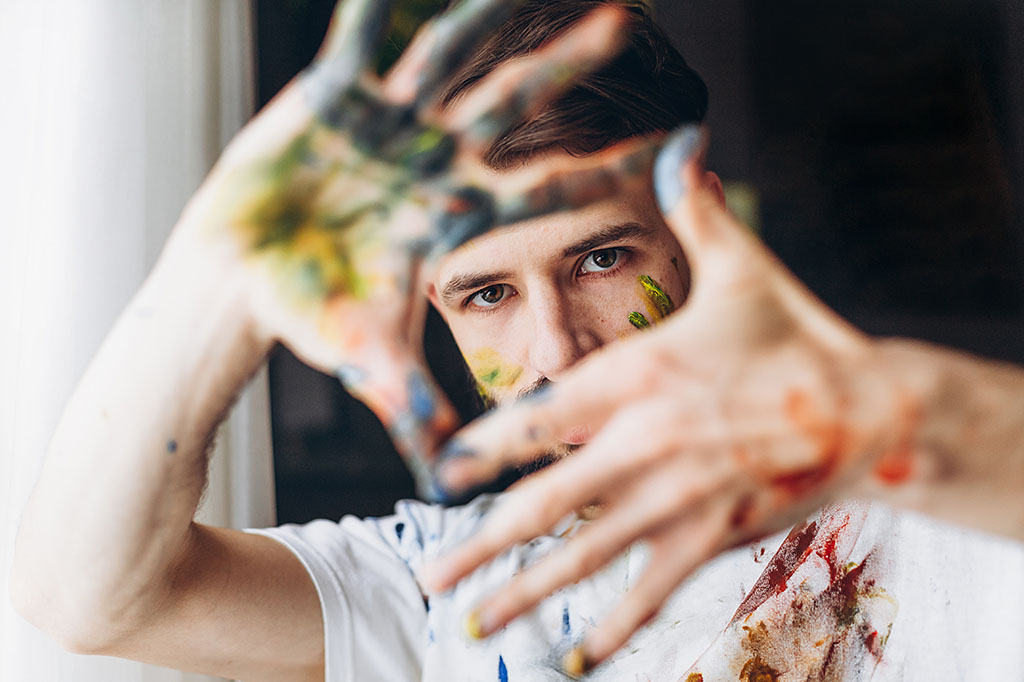
Celebrating Mothers Day 2023 in Recovery
April 28, 2023
Is Drug Addiction Genetic?
June 2, 2023
Celebrating Mothers Day 2023 in Recovery
April 28, 2023
Is Drug Addiction Genetic?
June 2, 2023
Addiction in Art: Famous Artists Who Used Drugs
It is a sad fact that many of our history’s greatest minds and visionaries also struggled with mental health problems of their own. Whether their creativity was a means of escapism or if the issue developed gradually over time, addiction in art is a relatively common combination that has resulted in numerous problems for these creatives and their loved ones. Faith in Recovery is taking a look at both the addictions and legacies of world-famous artists throughout history.
Artists That Struggled With Addiction
There are many reasons that a person chooses to abuse a substance. Whether it’s coping with unresolved trauma, looking for relief from mental illness, or simple societal pressure, the exact reasoning behind addiction will look different for everyone. Artists are no exception.
It is well known that art is utilized as a creative outlet for those who may not be able to articulate what they are struggling with otherwise. While it can lead some to immense success, that doesn’t mean the issues from before have suddenly disappeared. Whether it is art about addiction or art created by someone under the influence, the impact of mental illness cannot be denied. Below are some famous examples of addiction in art and creatives, as well as the legacies they left behind.
Vincent Van Gogh
Dutch painter Vincent Van Gogh was renowned for his post-impressionist aesthetic and bold use of color. His paintings frequently featured natural subjects, such as landscapes, flowers, and still lifes, as well as portraits of people he met while traveling. Throughout his life, Van Gogh would drink his sorrows away, eventually developing into alcoholism. It's also thought that he may have ingested absinthe, a highly intoxicating drink that was common in the 19th century. It is believed that his addiction played a role in both his erratic actions and his suicide at the age of 37. Despite his personal difficulties, Van Gogh's legacy continues, and his artwork is still valued for its aesthetic appeal and potency. His most well-known pieces include "Starry Night" and "Sunflowers," among others.
Jackson Pollock
American painter and pioneer of the abstract expressionist movement, Jackson Pollock, was known for his distinctive technique featuring dripping and splattering paint on substantial canvases to produce a vibrant and energizing look. Pollock was well-known for being a big drinker and battled alcoholism his entire life. It is thought that his addiction played a role in both his erratic actions and his premature passing. In spite of his personal difficulties, Pollock's work has had a significant influence on the art world and continues to motivate new generations of artists. His most well-known pieces include "Number 1 (Lavender Mist)," "Autumn Rhythm," and "Convergence."
Jean-Michel Basquiat
Jean-Michel Basquiat was an American painter who became well-known in the 1980s thanks to his distinctive aesthetic that merged fine art with street art and graffiti. He frequently used vivid colors, expressive lines, and cryptic symbols and text in his paintings. For a significant portion of his adult life, Basquiat battled a heroin addiction. His drug usage is frequently depicted in his artwork, where he occasionally included references to addiction and drug paraphernalia. He created several self-portraits on drugs as well. The modern art world has been greatly influenced by Basquiat's artistic legacy, and his paintings are still praised for their audacity, creativity, and social commentary. Among his best-known pieces are "Untitled (Skull)," "Flexible," and "Riding with Death."
Pablo Picasso
One of the most well-known and influential artists of the 20th century was the Spanish painter, printmaker, and sculptor Pablo Picasso. His works frequently portrayed subjects in a fragmented, abstract way, and he was a pioneer of cubism and other avant-garde art styles. Picasso's drug use is not as well-known as that of some of the other artists on this list, although it is possible that he used opium and other narcotics at different times throughout his life. Picasso produced a huge array of different types of art, and his legacy has had a significant influence on the art world. His most well-known works include "Les Demoiselles d'Avignon," "Guernica," and "The Old Guitarist."
Andy Warhol
An American artist named Andy Warhol was a key player in the 1960s pop art movement. His works frequently featured bold, graphic depictions of commonplace items, celebrities, and consumer culture. The unusual way in which Warhol created art—often using mass-produced prints and multiples—was well-known. Andy Warhol used drugs like amphetamines and other narcotics, which he referred to as his "medicine." It's thought that his addiction played a part in his premature passing in 1987. The art world has been affected by Warhol's artistic legacy for a long time, and his creations are still praised for their original ideas and cultural importance. His most well-known creations include "Elvis Presley," "Marilyn Monroe," and "Campbell's Soup Cans."
Heal From Addiction at Our Christian-based Rehab
For those in need of Christ-centered addiction treatment, our faith-based recovery programs are a fantastic option. Not only do patients get the care they need for their substance use disorder, but they will also have the ability to maintain their relationship with God through the process. We also offer detox programs that ensure any and all withdrawal symptoms are addressed in a medically monitored environment. As a patient moves through programming at our facility, they are given a chance to attend a variety of useful therapy programs that allow them to come face to face with the mindsets and thought patterns that led to the substance abuse.
Don’t struggle with these challenges alone. Contact Faith in Recovery at 888-280-4763 to learn more about our options for Christian addiction recovery.
Related Reading

